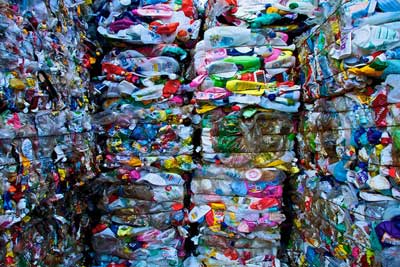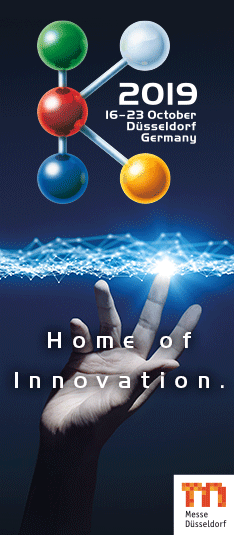| Plastics News |
BASF invests in Quantafuel to jointly drive chemical recycling of mixed plastic waste
October 7, 2019 – BASF SE is to invest €20 million into Quantafuel, a specialist for pyrolysis of mixed plastic waste and purification of pyrolysis oil, headquartered in Oslo, Norway. The investment will be facilitated via the subscription of new shares and via the grant of a convertible loan. Together, the partners aim to further develop Quantafuel’s technology for chemical recycling, consisting of an integrated process of pyrolysis and purification, towards optimizing the output for the use as feedstock in chemical production. In a second step, Quantafuel also plans to license the jointly developed technology to other parties. Quantafuel plans to start up a pyrolysis and purification plant with a nameplate capacity of approximately 16,000 tons per year in Skive, Denmark in the fourth quarter of 2019. As part of the investment agreement, for a minimum of 4 years after the start-up of production of Quantafuel’s Skive plant, BASF will have a right of first refusal to all pyrolysis oil and purified hydrocarbons from this plant. BASF will use these secondary raw materials in its ChemCycling project to develop the market for chemically recycled plastics with selected customers. At BASF’s Ludwigshafen site, the recycled raw materials will be fed into the production Verbund, thereby partially replacing fossil resources. Once the Quantafuel plant in Denmark reaches full capacity, BASF aims to deliver first commercial supply volumes of Ccycled products, meaning products based on chemically recycled plastic waste, to selected customers. To increase commercial offers, the parties furthermore aim to build jointly owned plants to produce purified hydrocarbons via chemical recycling. “The investment underlines BASF’s commitment towards a sustainable use of resources and the development of a circular economy model for plastics,” says Hartwig Michels, President Petrochemicals, BASF. “Moreover, the partnership is a first step to build up a broad supply base for Ccycled products. This enables us to support our customers in achieving their sustainability targets.” “We are of course honored that BASF has decided to invest both financial and human resources in our quest to become the leading technology company for recycling of a broad spectrum of mixed plastic waste based on our unique purification step,” says Kjetil Bøhn, CEO of Quantafuel. “Our longstanding strategic partner Vitol S.A, the world’s largest independent energy trader, has agreed to open our existing cooperation to enable the collaboration between BASF and Quantafuel. We now have the foundation to establish production capacity on a scale that could have a meaningful impact on the global environmental challenges with waste plastic.” BASF started its ChemCycling project in 2018 with the aim to process recycled raw materials obtained from plastic waste in its production Verbund. Together with customers from various industries, BASF has already produced first prototypes based on chemically recycled plastic waste – including food packaging for which particularly high quality and hygiene standards apply. The share of recycled raw material is allocated to the final product by using a certified mass balance approach. To fully develop the market for chemically recycled products, besides technological challenges, regulatory issues will need to be resolved. “On the regulatory side, authorities need to more broadly establish a technology-open definition of recycling, allowing that the use of chemical recycling processes can count towards recycling targets,” says Michels. “In addition, incentives for recycled content should apply equally to all types of recycling and we also need full acceptance of mass balance approaches.” Source: BASF |
 .
.
